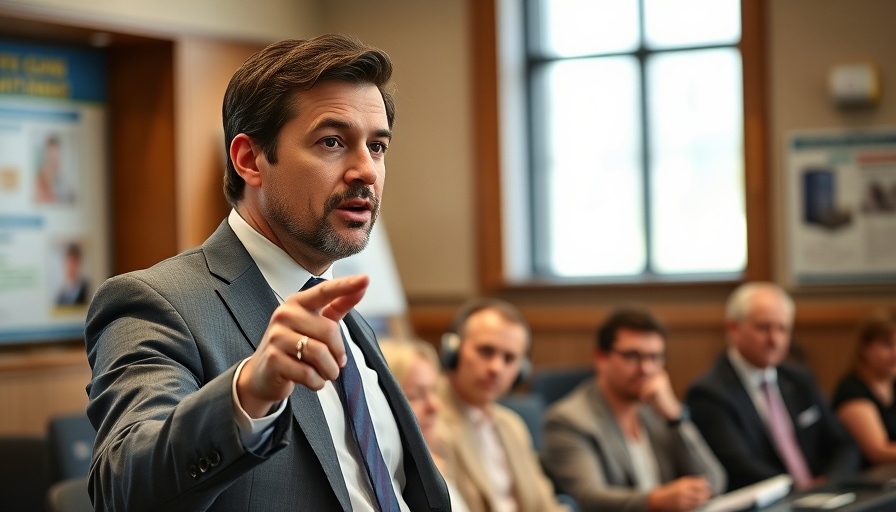
Medicaid Cuts: A Direct Threat to Vulnerable Lives
The proposed cuts to Medicaid outlined in a recent town hall meeting in Tustin, California, echo a widespread concern affecting millions of families across the United States. Cynthia Williams, a primary caregiver for her sister and daughter, articulated the anguish felt by many in attendance, emphasizing the importance of Medi-Cal. This program has been a lifeline for individuals requiring both essential health services and daily support, particularly those with disabilities and chronic conditions.
The Reality of Medi-Cal Funding in California
In California, where over 15 million people are enrolled in Medi-Cal, the implications of potential cuts are profound. With a budget nearing $161 billion, a significant portion financed by federal sources, Medi-Cal serves as a critical support system not only for the disabled but also for elderly individuals who rely on this program for home care and other essential services. As reported by Justice in Aging, over 2.3 million older adults depend on Medi-Cal, reinforcing the necessity of maintaining its funding to avoid crises in home and community-based services across the state.
Economic Impact of Medicaid Cuts
Beyond healthcare, these cuts pose severe economic implications. According to the Inland Empire Health Plan, over 40% of residents in Riverside and San Bernardino counties rely on Medi-Cal, highlighting its role in not just individual well-being but also in sustaining local businesses. Cuts to Medicaid would jeopardize not only patient care but also the financial viability of healthcare providers, potentially leading to widespread facility closures and job losses. In low-wage sectors, where many Medi-Cal enrollees work, diminished health support could lead to increased absenteeism and reduced workforce stability.
Public Sentiment Against Medicaid Cuts
A recent survey indicates that two-thirds of Californians are against cuts to Medi-Cal, reflecting a unified front across party lines. Families like Josephine Rios, who cited her grandson's life-saving medications, underline the urgency for advocacy. Stakeholders have made their voices heard, pointing out that Medicaid is not just a healthcare issue but a matter of life and death for many vulnerable residents.
Moving Forward: The Call to Action
The outcry from Californians resonates beyond local town halls. It calls on policymakers to reconsider the ramifications of Medicaid cuts and the essential protections they provide for individuals across age groups and socioeconomic statuses. With millions of lives dependent on these critical support systems, citizens are mobilizing to ensure their voices reach Washington.
In conclusion, maintaining Medi-Cal funding goes beyond politics; it's about safeguarding the health and economic stability of communities. Advocating for Medicaid is essential—not just for those enrolled, but for the collective strength of our society as a whole. Concerned citizens should engage in dialogue with their representatives, emphasizing the vital role that Medicaid plays in their communities and lives.
 Add Row
Add Row  Add
Add 




 Add Row
Add Row  Add
Add 



Write A Comment